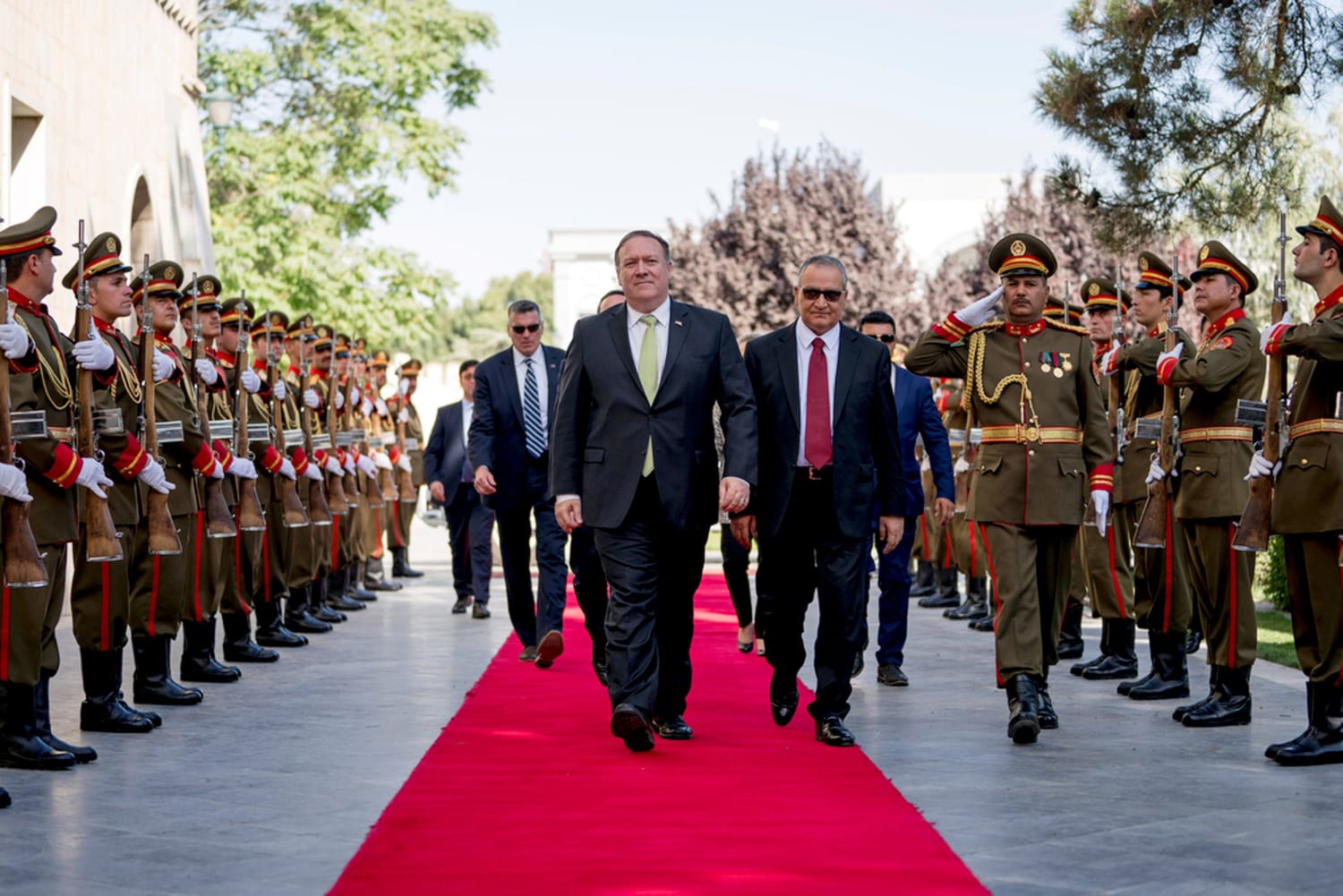
According to Reference News, peace negotiations between the Afghan government and the Taliban begin today in Qatar. Secretary of State Mike Pompeo will also be joining the negotiations. Pompeo called the peace talks a “historic” opportunity to end decades of war and bloodshed in Afghanistan. Will Pompeo’s visit to Doha really bring about peace?
With the U.S. presidential election less than two months away, mediation of peace talks in Afghanistan by Pompeo and other high profile U.S. politicians is clearly just a way for politicians to boost morale for Donald Trump’s presidential campaign prior to the election.
On Sept. 9, Trump once again announced that he would substantially reduce the number of U.S. soldiers stationed in Afghanistan, decreasing the number of troops from approximately 8,600 to 4,000 over a short period of time. He also announced that he would be reducing the number of troops stationed in Iraq as well. This is Trump’s attempt to win over voters by fulfilling the promise he made early on in the 2016 election to reduce the number of troops overseas and allow them to return home.
Trump has said that, since February, not a single U.S. soldier has died in Afghanistan, adding that “… great progress is being made.” The U.S. intends to facilitate the intra-Afghan peace talks with the goal of bringing about peace in order to make its withdrawal of troops seem more legitimate.
Trump claimed that the opening of talks was “a result of a bold diplomatic effort on the part of my administration in recent months and years. The United States will play an important role in bringing the parties together to end the decades-long war.” Negotiations haven’t even begun yet and the first thing the United States does is to act full of itself. It’s hard to say how the talks will turn out, and U.S. politicians are putting on a full show.
For Afghanistan, peace remains a long way off.
In February, the U.S. reached a peace agreement with the Taliban. At the same time, the Taliban declared a cease-fire to create space for peace talks. Pompeo also called this a historic opportunity. However, conflict resumed almost immediately after the agreement was signed.
Will these historic opportunities pass the test of history? I’m afraid most of them are merely American politicians bragging about their actions.
One of the conditions of the peace agreement provides that the Afghan government release Taliban prisoners. The Afghan government and the Taliban have vastly different opinions on this particular condition, and the release has been delayed many times for one reason or another. As a result, the negotiations, originally planned for March, did not begin until today. Whether today’s talks will fare better than the previous meeting is the million-dollar question. On his way to Doha, Pompeo said that the peace talks could be fraught with disagreement.
Even if an agreement is reached and the U.S. withdraws its troops, how will the parties ensure that the treaty is being upheld? This is a question worth paying attention to. The treaty between the U.S. and the Taliban in February never included a clause on how to enforce the agreement. It remains to be seen how binding the agreement will be for the Taliban.
According to the United Nations Assistance Mission in Afghanistan, in the first half of this year, the Taliban’s activity resulted in 580 civilian deaths and 893 civilian injuries, accounting for 43% of the total civilian casualties. On Sept. 11, Taliban militants attacked a security checkpoint in Nangarhar province in eastern Afghanistan, killing six soldiers and injuring five others. This makes one think about what peace talks between the Afghan government and the Taliban actually mean.
Even if the two sides reach an agreement, there are still extremist militant groups in Afghanistan such as al-Qaida and the Islamic State which still pose a threat to peace. The Afghan government will face greater military pressure after the U.S. withdraws its troops.
The situation in Afghanistan involves all the parties in the region. China has always maintained that intra-Afghan negotiations should be “Afghan-led” and “Afghan-owned;” to prevent any one country from dominating the process, something which would lead to new problems and hidden dangers.
Afghanistan, which has suffered from decades of war, has been left in shambles due to a war started by the U.S. According to UNAMA, there have been more than 100,000 civilian casualties since the organization began counting in 2009. After decades of war, Afghan citizens remain distressed, destitute and homeless. The U.S. cannot deny that it is responsible. Even if peace is truly achieved in Afghanistan, this shouldn’t become an opportunity for some U.S. politician to capitalize on, and it shouldn’t become something to flaunt as if some politician achieved it.

Leave a Reply
You must be logged in to post a comment.